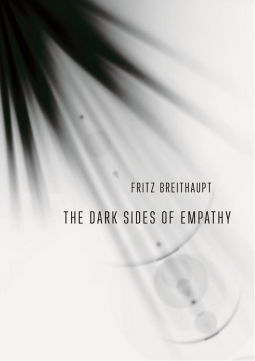
The Dark Sides of Empathy
by Fritz Breithaupt
This title was previously available on NetGalley and is now archived.
Send NetGalley books directly to your Kindle or Kindle app
1
To read on a Kindle or Kindle app, please add kindle@netgalley.com as an approved email address to receive files in your Amazon account. Click here for step-by-step instructions.
2
Also find your Kindle email address within your Amazon account, and enter it here.
Pub Date Jun 15 2019 | Archive Date Jun 15 2019
Talking about this book? Use #TheDarkSidesOfEmpathy #NetGalley. More hashtag tips!
Description
Many consider empathy to be the basis of moral action. However, the ability to empathize with others is also a prerequisite for deliberate acts of humiliation and cruelty. In The Dark Sides of Empathy, Fritz Breithaupt contends that people often commit atrocities not out of a failure of empathy but rather as a direct consequence of over-identification and a desire to increase empathy. Even well-meaning compassion can have many unintended consequences, such as intensifying conflicts or exploiting others.
Empathy plays a central part in a variety of highly problematic behaviors. From mere callousness to terrorism, exploitation to sadism, and emotional vampirism to stalking, empathy all too often motivates and promotes malicious acts. After tracing the development of empathy as an idea in German philosophy, Breithaupt looks at a wide-ranging series of case studies—from Stockholm syndrome to Angela Merkel's refugee policy and from novels of the romantic era to helicopter parents and murderous cheerleader moms—to uncover how narcissism, sadism, and dangerous celebrity obsessions alike find their roots in the quality that, arguably, most makes us human.
Available Editions
| EDITION | Other Format |
| ISBN | 9781501721649 |
| PRICE | $21.95 (USD) |
| PAGES | 288 |
Featured Reviews
 Morgan S, Reviewer
Morgan S, Reviewer
I received an advanced readers copy in exchange for an honest review.
This book caused me to think things through very deeply that I probably would not have thought if I had not read it – and for that alone I would consider it a worthwhile use of my time. It examines human nature more honestly then many books of its kind, and well I definitely saw some of myself in the more selfish or as he would put it “vampiric “type of empathy, I understand that was something I probably needed to look at. I work in mental health, with people who are often considered personality disordered, which labels them as having a lack of empathy, but instead it is this dark empathy that dominates that leads to their behaviors, and so much of what happens in our society that often leads us confused- how could “good” people cause such bad feeling? Definitely should be read by students of psychology and philosophy.
 Tap The Line O, Media/Journalist
Tap The Line O, Media/Journalist
This was a title I was eager to check out as I was curious to see the argument(s) that would put in question the dominant interpretation(s) of empathy. The writer, Fritz Breithaupt, is a professor of cognitive science but himself claims that his main academic focus is literary criticism and cultural studies. He claims that this is not a book against empathy but rather intends to suggest a different approach to this "central form that shapes what we are as human beings". Breithaupt struggles to show the reader the sadistic, callous actions that can be triggered by empathy and because of it. He writes: "Extreme acts of cruelty require a high level of empathy" and continues, "Sadism is not the product of a lack of empathy but rather from the wish for its intensification".
The book consists of five chapters (plus the introduction and the epilogue), and some of them are truly engaging as Breithaupt follows consistent reasoning, thus never confusing even the ignorant reader, and he coins terms such as "False Empathy", "Filtered Empathy", "Empathetic Sadism" and "Vampiristic Empathy" (!). I found the first chapter on the relation of the Nietzschean notions of "Self" and "Self-Loss" with empathy and Aesthetics. Nietzsche, in his books Beyond Good and Evil and Genealogy of Morals, writes about the "Objective Man'' who is an observer lacking any special feature that is associated with the sense of selfhood, he is nothing more than a mirror who, nevertheless, is the only human being capable of expressing genuine sympathy. Those who exhibit a strong sense of self are not likely to show signs of empathy as their defining features block such inclinations. I also thought that the third chapter about false and filtered empathy was also enlightening and very well-written. There is also a number of references for those who are interested in the subject, so don't forget to check out the bibliography in the end of the book. To sum up, this is an interesting read on a subject that, until now, was not in dispute in the academic milieu. Any bold attempt to new interpretations on tough subject is worthy of our respect and Fritz Breithaupt succeeds in planting the seed the seed of doubt in the readers' minds.
Readers who liked this book also liked:
Jodi Picoult; Jennifer Finney Boylan
General Fiction (Adult), Literary Fiction, Women's Fiction










